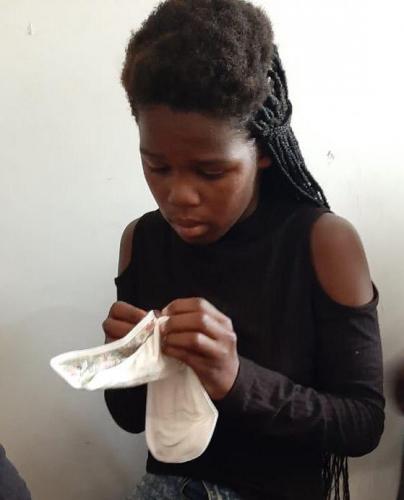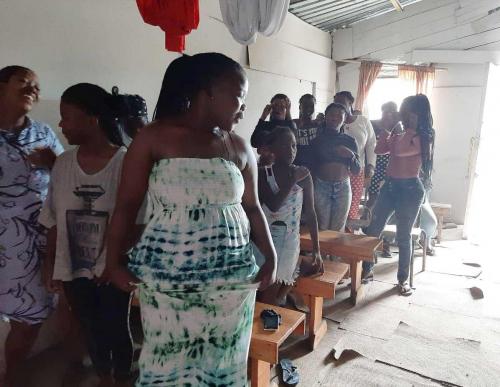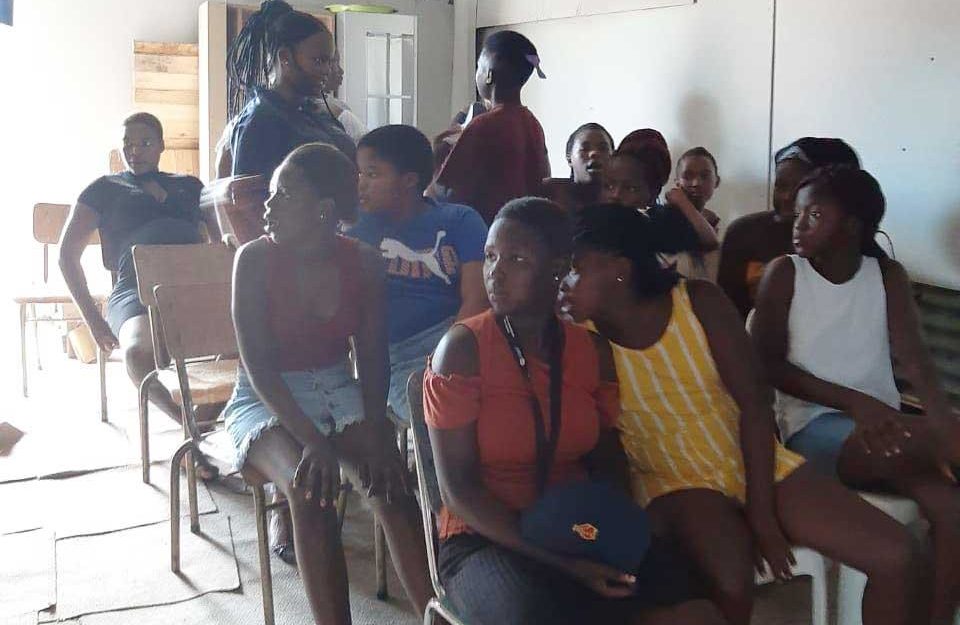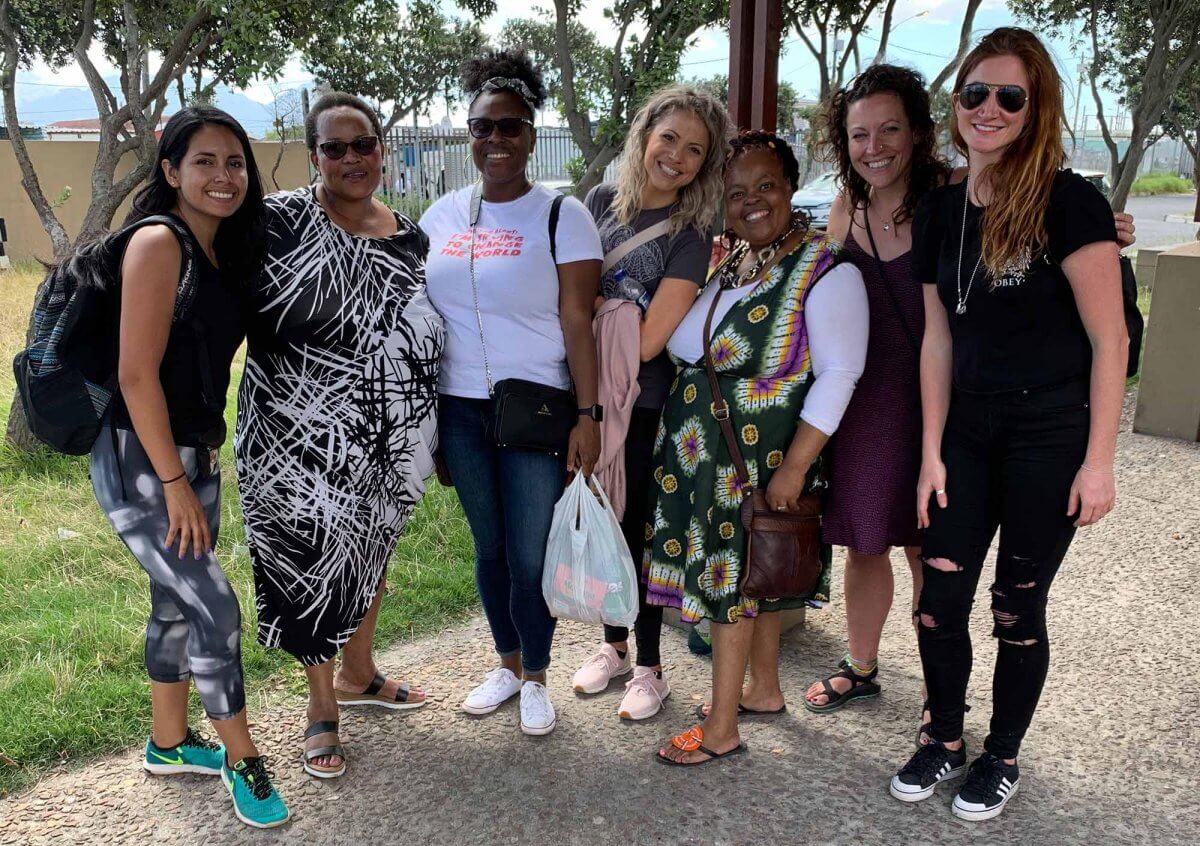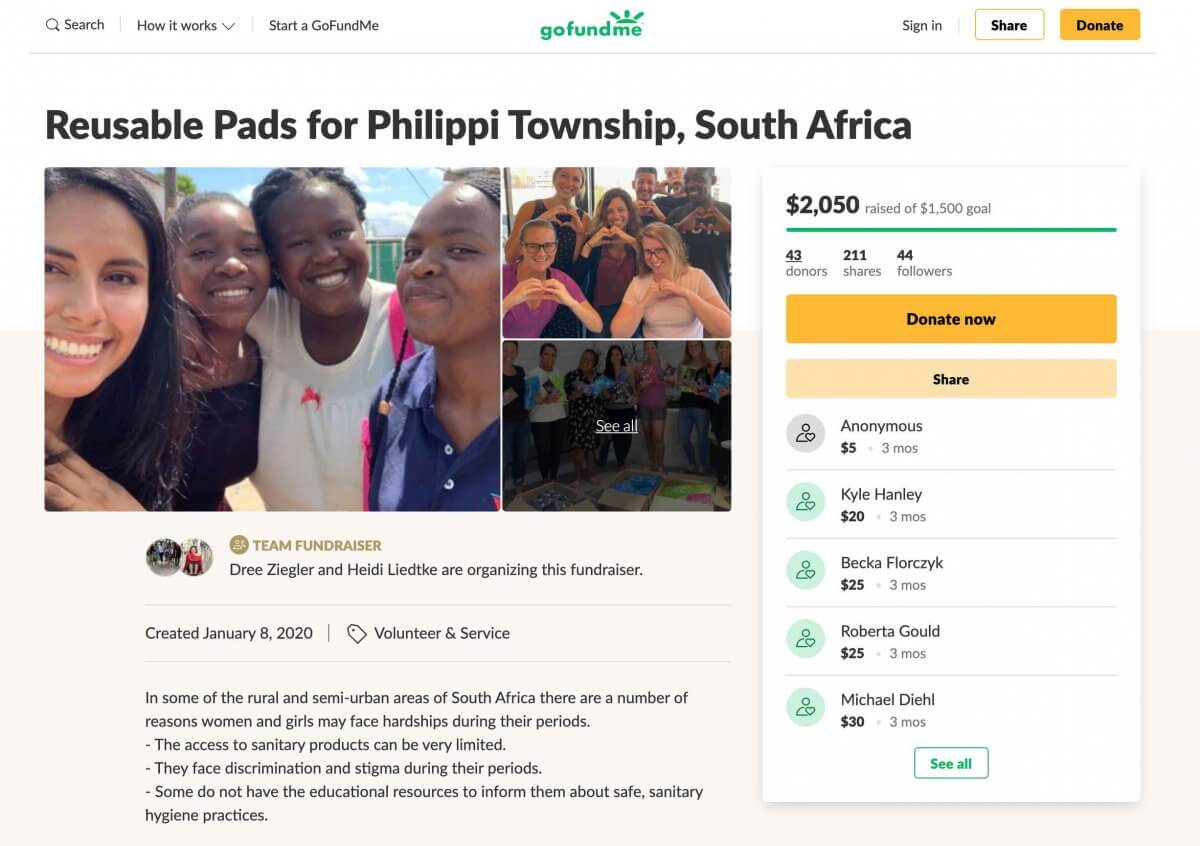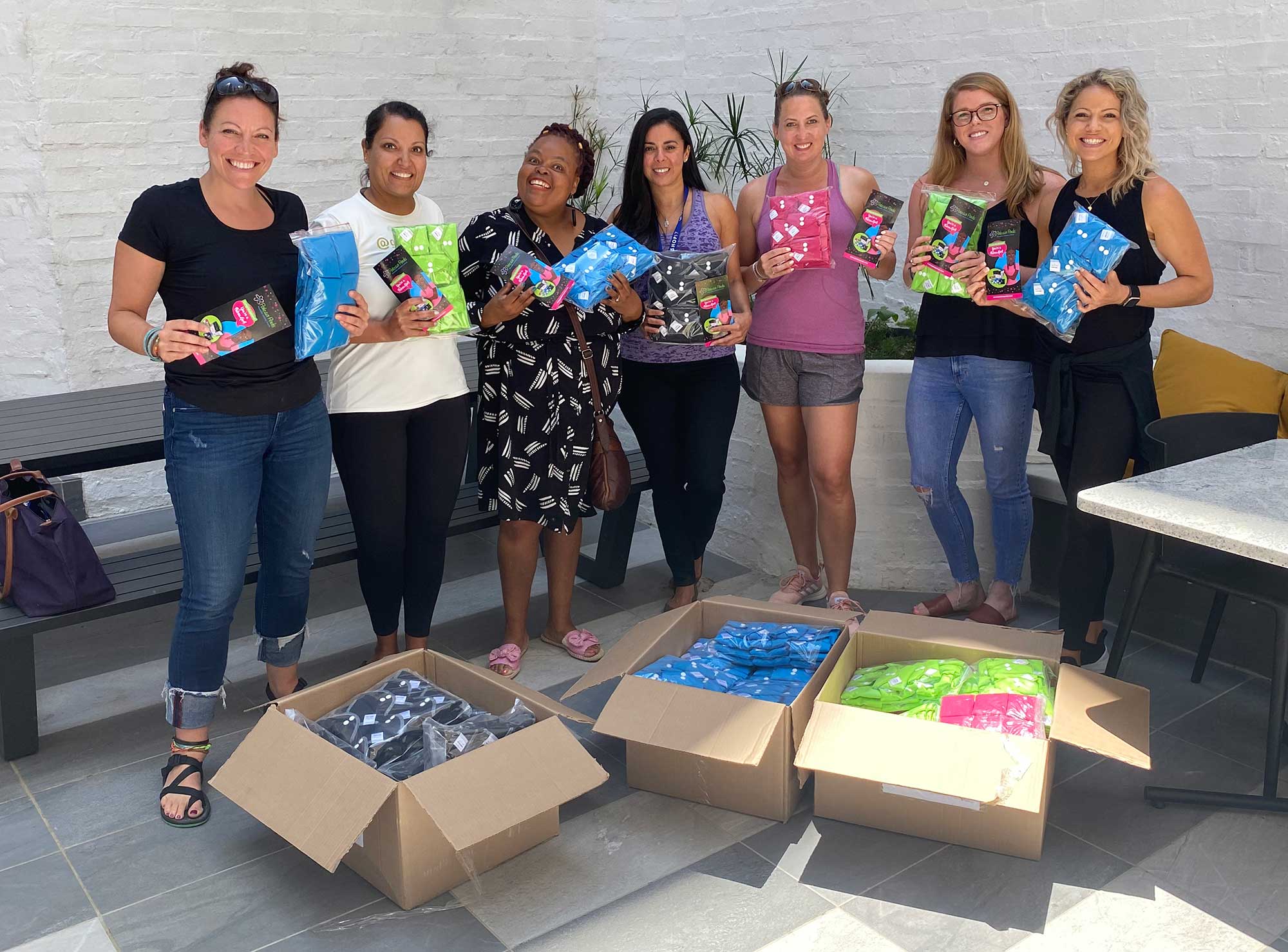In some rural and semi-urban areas of South Africa, many women and girls face hardships during their periods.
Access to sanitary products can be very limited, or prohibitively expensive. They may face discrimination and stigma during their periods. And some do not have the educational resources to inform them about safe, sanitary hygiene practices.
According to Stellenbosch University Law Clinic, 30 percent of girls in South Africa do not attend school when they are menstruating, because they cannot afford sanitary products.
Up to 30 percent of girls in South Africa do not attend school when they are menstruating, because they cannot afford sanitary products.
Stellenbosch University Law Clinic
In mid-January, I found myself jammed into the back of an Uber with four other lady remotes on a day trip to one of the townships on the outskirts of the city. We would be hosting a period workshop in Philippi Township with some young ladies between the ages of 11 and 20. Our goal was to give the girls a safe space to talk about their experiences, and introduce some options for managing their periods with dignity. We’d also crammed 30 pink period comfort kits for the girls in the back of the car, each with a pack of pads, soap, washcloth, a pen and journal, and a few other essentials we hoped teenage girls would enjoy.
I envisioned this event happening in a clinic setting of some kind – mostly because we’d facilitated it through the Philippi Clinic – and that’s where we were headed.
But upon arriving, our plans quickly shifted. We would not be holding the event in the clinic, but walked a few blocks away from the clinic to a tiny church nestled in between shacks. And not just 30 girls, but more like 50 young ladies waited for us, seated in rows, chatting and full of energy. There wouldn’t be room for small group discussions or breaking up to to play games — there were just too many girls and not enough space.
At this point, I should introduce Nomfundo Eland, the facilitator of this event and the founder of Emthonjeni Counselling & Training. Nomfundo has done a ton of great work in women’s health, working to educate women in Cape Town on everything from HIV and AIDS to sexual violence. Google her. She’s doing really rad things in South Africa, and I was so delighted to meet her.
We decided to form a panel at the front of the church and did our best to make the girls feel comfortable as a group discussing their periods, each of us offering up some of our own experiences and encouraging the girls to ask questions. Nomfundo translated in Xhosa occasionally as we explained that having a period is a normal, healthy part of being a woman.
We talked about common health issues, and what to look out for, and we introduced a few tools to manage their periods in a hygienic way – disposable pads, tampons, the menstrual cup, and reusable pads.
And I kid you not, these girls burst into applause when we introduced the reusable pads.
We had only brought five reusable pads in a single pack to give away as a raffle at the end of the workshop, but they had been too expensive to buy for all of the girls, so we couldn’t offer all of them this solution. And based on their reaction, this seemed really unfortunate.
As we packed up and headed back to the clinic, I felt very moved to get all of these girls the reusable pads they wanted. If this was the solution they thought best fit their lifestyle, we had the means and support to get it for them. On the ride home, we agreed that we should do a fundraiser for reusable pads, since they were so obviously excited by the idea. We could tap into our Ramses family for funds, and share with our networks back home to get additional support.
We kicked off a GoFundMe a few days later with what I thought was a very achievable goal of $750, which would get us enough pads for the enthusiastic group at the church. But by the next day, we had blown through our goal with just a few friends donating and sharing the fundraiser. We upped our goal to $1500, and asked for more.
I started researching where we should purchase the pads from. Buying locally, so we could support a South African business with our funds, seemed like a win-win. I wasn’t able to find something in the immediate area of Cape Town, but did find Palesa Reusable Pads, a company in Johannesburg that employed South African women. Their mission aligned with what we hoped to do in the township — de-stigmatize periods for women and provide them with a cost-effective tool for managing it hygienically and without shame.
In the course of about a week, we raised more than $2,000 on our GoFundMe page — A sum that would support not only our initial group of 50 women and girls that attended the period workshop, but far more women in their community. Our family and friend networks in the U.S. really stepped up, with more than 40 people supporting our campaign online. Palesa Pads gave us the wholesale price for the pads and we ordered almost 1,000 pads of different sizes.
Our work with Nomfundo and the Emthonjeni organization has not paused, even though we’ve moved on to the next country. A few of us have continued to work with her, planning writing workshops, day camps, and helping her build a new website remotely while recruiting the next round of Remote Year volunteers rolling through Cape Town.




